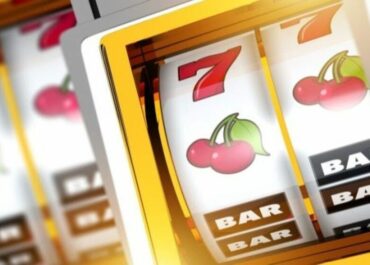The Basics of Gambling Gambling
Distinct sports have different odds and betting systems. Even within the same sport, there are several betting methods to choose from dependant on the type of game the bettor is interested in participating in. However, you must first become familiar with the lingo in order to comprehend any of these systems.
Simply put, action refers to any activity involving betting. This term is the origin of phrases such as “I want in on the action” and “show me where the action is.” Because gambling on sports is banned in many areas, finding a bookie in your area through the phone book may not always be possible.
In the world of sports betting, “to handicap” means to provide a team with a point advantage in order to make the playing field more even.
The “handle” refers to the total amount of money that was wagered in the game. The betting on the Super Bowl is typically the biggest transaction that most bookies make all year.
A sportsbook, also referred to simply as a book, is a corporation that accepts wagers on sporting events. Bookies are individuals who accept wagers from customers.
The percentage of each wager that is retained by the book as a kind of profit is referred to as the juice. Another name for the juice is “vig,” which is an abbreviation for “energy.” Most of the time, the vig is included in the odds, however there are occasions when the bookies take an even proportion of the deal.
The spread is a term that refers to the point differential that is employed in high-scoring sports like basketball and football. In essence, it is a handicap that is applied to each game in order to increase the sense of competition among bettors. The point spread provides a slight edge to one team over the other. In the standard notation for the point spread, the name of the team that is receiving points is listed first, followed by a negative number (the actual spread). The initial letter of the name of the home team is capitalized. If Buffalo were to play Green Bay at Green Bay and the Packers were favorites to win by seven points, the game would play out as follows:
If a wager was placed on Buffalo coming out on top, the wager would only be successful if Buffalo won by a margin of more than seven points. It’s almost as if Green Bay jumped out to an early seven-point lead in the game.
In sports like baseball, where the number of runs scored is typically low, the point spread is replaced with the money line. Instead, the money line is what is used. An example of a money listing could look something like this:
Because the decimal point is not always included, the number 120 can also be written as 1.20. You will need to place a bet of $1.20 for every $1 that you wish to earn if you want to wager on the white SOX, who are the favorite team. If you want to gamble on the underdog Astros, you need wager one dollar for every one dollar and ten cents that you wish to win. Because ten cents differentiates the favorite from the underdog, this line is commonly referred to as the Dime line. The majority of bookies provide a dime line, but this can increase to a 20 cent line or even greater if one team is significantly favored over the other.
Consider the money supply as a straightforward pricing structure if you find thinking about it to be complex. Your wager will result in a profit of a particular amount for you. Because the odds of the favored team winning the game are higher than those of the underdog team, it costs more to bet on the favorite to win that amount than it does to bet on the underdog to win that amount.
That or what is the one who makes the bets?
The definition makes one thing abundantly apparent, and that is that betting on sports involves an agreement between two persons. The two parties are typically engaged in a contest with one another on their respective predictions. The betting process in current times, particularly when done on the internet, is a little bit different. The bookmaker, or “runner,” provides you with a number of different betting options to pick from, but they do not wager money against you.
On the website of the sports betting provider, such as Cazimbo, you will just be required to make the decision of which events, and more importantly, which results, you wish to place a wager on. The tip consists of your forecast as well as the amount of money that you stake. Your rival in this endeavor is the bookmaker (also called bookie). The odds that the bookmaker gives you to bet against them get lower when the outcome of a match is more likely to occur, and the opposite is true when the odds get higher. It is common practice for the bookmaker and the bookmaker to be the same service provider, but this is not always the case.

